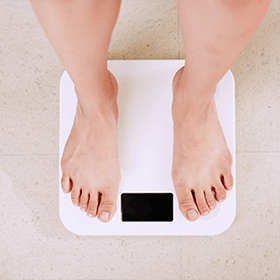By Ben Fletcher
Exercise for Stress
Stress can't always be fully prevented, but there are a number of ways in which you can help to manage your stress levels, and regular physical activity is one of them. It is common knowledge that any form physical activity is good for our health helping us to relax and improving our mood, self esteem and sleep patterns.
Why does physical activity relieve stress?
Being physically active releases endorphins, making you feel good and distracting you from your daily worries. As such, it can be argued that exercise in itself is an effective stress reliever.
Stress affects us emotionally, mentally, physically and behaviourally. It is our response to upheaval and unpredictability in our daily lives. In the right amounts, stress can be useful, keeping us alert and energetic allowing us to do our best. However, too much stress may make us tense, anxious and cause sleep problems.
How you may feel emotionally when stressed:
- Overwhelmed
- Irritable and wound up
- Anxious or fearful
- Low self-esteem
How you may feel mentally when stressed:
- Racing thoughts
- Constantly worrying
- Difficulty concentrating
- Difficulty making decisions
How you may feel physically when stressed:
- Headaches
- Muscle tension or pain
- Dizziness
- Sleep problems
- Constantly feeling tired
- Over or under eating
How you may behave when stressed:
- Heavier drinking or smoking than usual
- Snapping at others
- Avoiding things or people you are having problems with
Managing stress with exercise
If you are stressed, here are some tips to help you get started on your active lifestyle and then stick with it:
- Start slowly. Only gradually increase the amount and intensity at which you perform your chosen activity over time. Doing too much too soon could be a shock to the system resulting in injury, particularly if you are just starting out. For example, you may start with introducing bouts of 10-minute brisk walking into your day along with some light muscle strengthening activity.
- Do what you enjoy. If you pick something you enjoy, you are more likely to do it more often. Don't be afraid to get creative and try new things.
- Plan some activities. Making plans may help you to stick to your exercise programme and make being active more of a priority. You may put a workout in your diary for lunchtime, or arrange a game of badminton with your friend one evening.
- Set goals. The SMART criteria may be a useful starting point for the creation of exercise goals – making them specific, measurable, achievable, relevant and time-limited.
- Find a partner. Having someone you can exercise with will help to keep your motivation and commitment high, plus most people find it more fun when they're training alongside someone else.
- Variation is key. Every now and again it's good to change your exercise routine to prevent monotony setting in, keep you motivated and challenge your body to new exercises, sports and activities.

